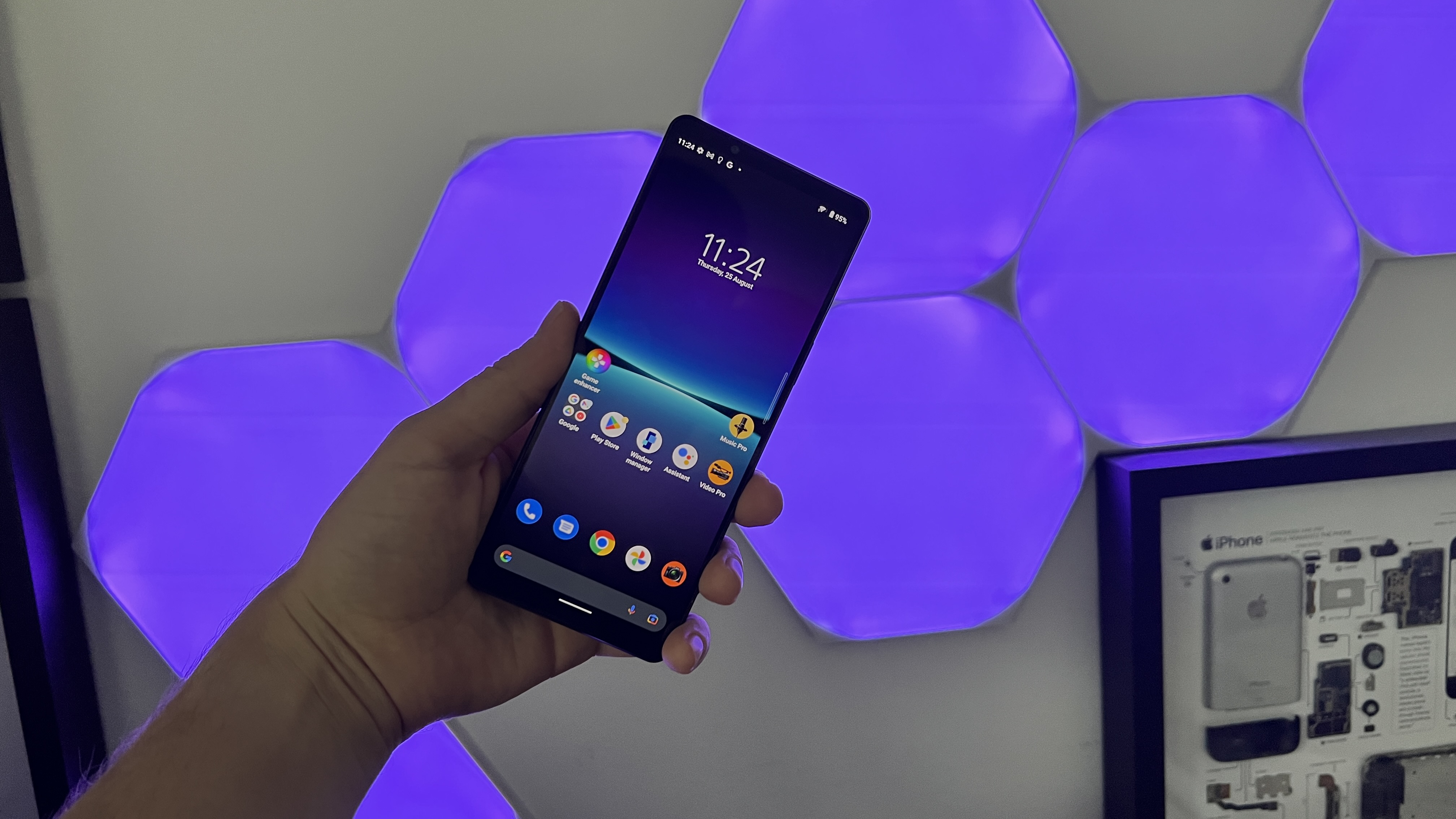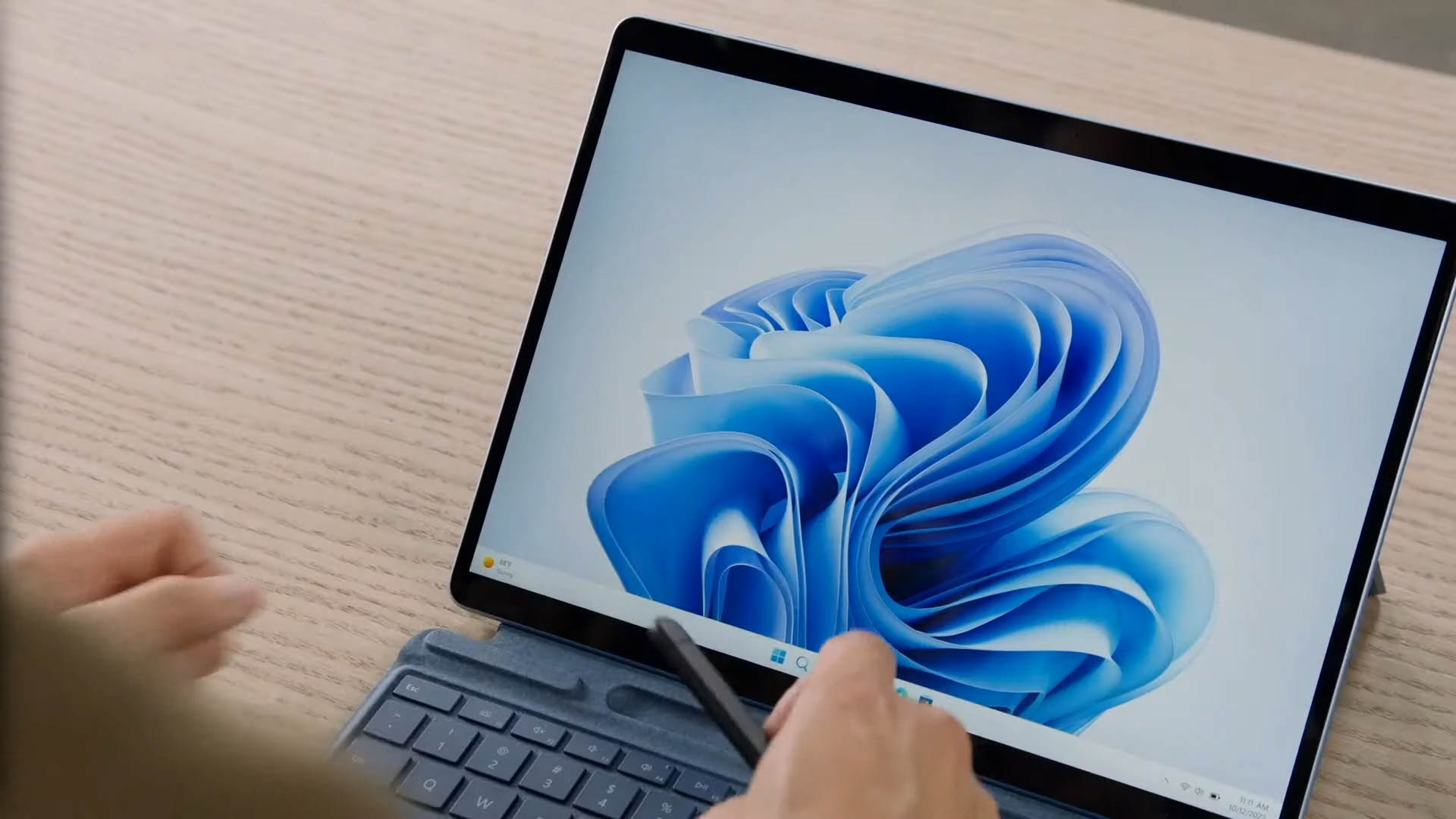Laptop Mag Verdict
The Sony Xperia 1 IV is another great smartphone for a small audience — offering iterative updates to an already solid experience. But the trade-offs, like thermal throttling and a sky high price tag, may prove too much for some.
Pros
- +
Solid battery life
- +
Gorgeous 21:9 display
- +
Strong cameras
- +
Powerful Snapdragon 8 Gen 1…
Cons
- -
…limited by thermal throttling
- -
Gets very hot, very fast
- -
Minor improvements over Xperia 1 III
- -
Expensive at $1,599
Why you can trust Laptop Mag
The Sony Xperia 1 IV is a classic lesson in evolution, rather than revolution. At first glance it appears identical to the Xperia 1 III, but there are small changes that make big differences.
Changes like an update to the latest Snapdragon 8 Gen 1 chipset, a bigger battery, and tweaks to the camera system make this a more versatile slab for the focussed target audience of this phone: cinephiles, audiophiles and creative pros. But some of these differences, as I’ll go into, are unwelcome.
Has Sony struck the right balance and produced a fine smartphone, or are its problems just too much? Let’s find out.
Sony Xperia 1 IV price and configurations
The Sony Xperia 1 IV is a pricey beast at £1,299 for the 256GB version in the UK, going up to $1,599 for a 512GB model in the US.
This pricing puts it well above its closest competition in the likes of the OnePlus 10 Pro and iPhone 13 Pro Max.
There are a couple of deals below though that can get you a discount and some pretty awesome freebies.
- Buy Sony Xperia 1 IV for $1,599 with free pair of Sony WF-1000XM4 earbuds
- Buy Sony Xperia 1 IV for £1,299 with free pair of Sony WH-1000XM4 headphones
Sony Xperia 1 IV design
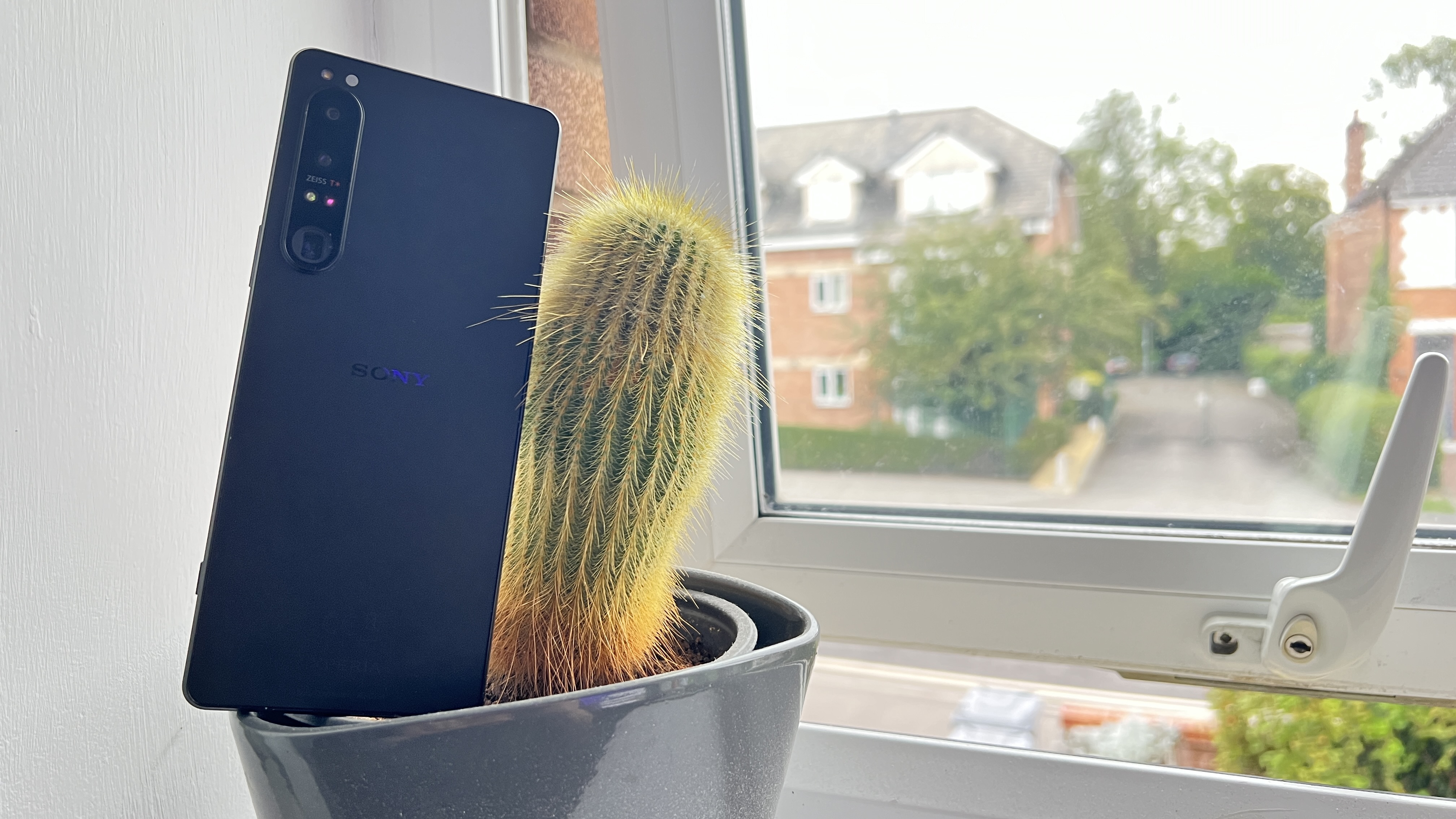
Sony’s Xperia phones have one particular aesthetic, which will seemingly never change. That’s not necessarily a bad thing given the use of premium materials and a refined, utilitarian persona in all black.
This classic glass-and-metal sandwich comes with a dual-SIM tray on the bottom that you can remove without a pin, and various buttons on the right edge including a dedicated camera shutter button. As for ports, you have two: a USB-C and a warmly welcomed 3.5mm headphone jack.
Identical to the third generation, the Xperia 1 IV measures in at 6.5 x 2.8 x 0.3 inches with a weight of 6.5 ounces. The extended length and towering display make this phone taller, but significantly lighter than the iPhone 13 Pro Max (6.3 x 3.1 x 0.3 inches, 8.5 ounces). As for the OnePlus 10 Pro, the dimensions are a lot closer, but a similar story to the Pro Max comparison (6.4 x 2.9 x 0.33 inches, 7.1 ounces).
Yes, this is quite the long slab, which doesn’t make it the easiest phone to fit into smaller pockets, but it’s comfortable to hold thanks to its lightweight, skinny footprint. And let’s be honest, Sony does stand out amongst the many generic smartphones with a device that just exudes cool from every angle.
Sony Xperia 1 IV display
If it ain’t broke, don’t fix it. The Sony Xperia 1 IV packs the same 6.4-inch, 4K (3840 x 1644-pixel) 120Hz HDR OLED panel with a 21:9 aspect ratio. The results are gorgeously sharp and full of color thanks to Bravia color science.
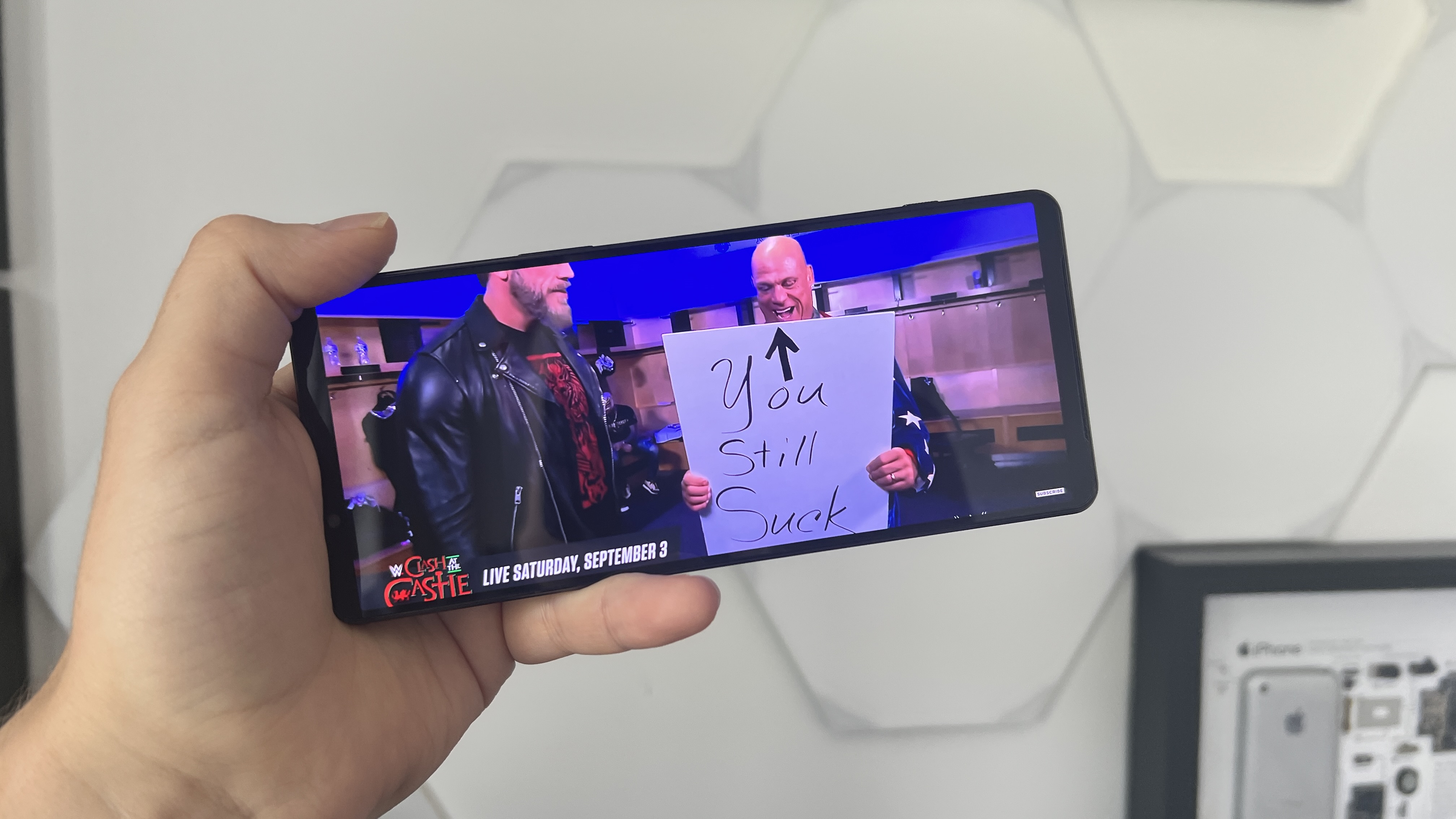
Open up the Bravia Core app and pick up one of the free movie rental redemptions to make the most of it in the likes of Spider-Man: No Way Home, which is an explosion of color with immersive HDR depth. Make no mistake about it, this is a dream panel, not just for movies but for general use and gaming too, thanks to that buttery smooth frame rate.
The Xperia 1 IV also offers a couple of image quality settings, including the “Standard mode” that Sony claims expands the original color gamut for brighter and more vivid color effects, along with “Creator mode,” which offers 10-bit color of HDR specification and true reproduction of images and videos for the 4K display.
This is automatically applied on specific apps, including the Cinema Pro and Photography Pro apps. But let’s be honest, the 4K resolution is overkill. On a 6.4-inch panel, you will hardly tell the difference between this and QHD (2560 × 1440), which begs the question: is it really worth it?
But as it is, this is, without a doubt, one of the best smartphones for viewing content that lives up to its “CinemaWide” branding.
Sony Xperia 1 IV audio
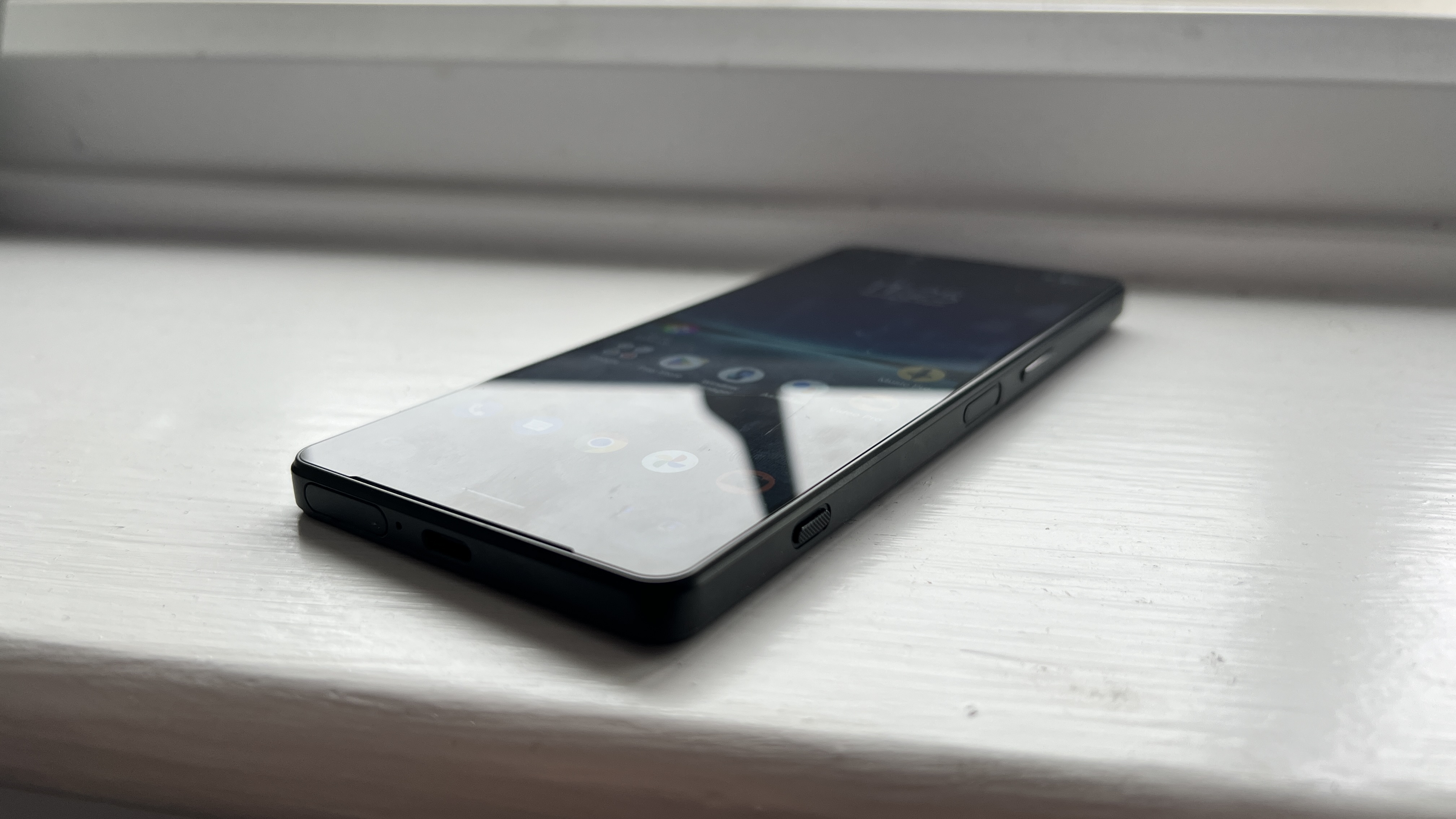
Of course, a good viewing experience needs powerful audio, which this phone delivers handily thanks to three key features.
The big headlines here are support for Hi-Res wireless audio, thanks to the LDAC codec on-board and 360-degree spatial audio. That means you can make the most of Sony’s WF-1000XM4 earbuds, or Anker’s Soundcore’s Liberty 3 Pro or the Edifier Neobuds Pro. If you haven’t heard the difference between standard AAC audio and LDAC for yourself, it is night and day.
Another big win is the continued support for wired headphones thanks to the 3.5mm audio jack. My classic Sennheiser cans are getting a workout and it speaks to the versatility of this phone.
Without headphones though, the dual stereo speakers with Dolby Atmos deliver crisp sonics without distortion. Sure, they’re tinny at high volumes, as you’d expect with any smartphone, but Four Year Strong’s cover of “Bittersweet Symphony” sounded great. The subtle details shone, while the thrashing loud chorus was all kept under control.
Sony Xperia 1 IV performance
Under the hood, you’ll find a Snapdragon 8 Gen 1 chipset alongside 12GB RAM and 256GB of on-board storage (in the US model, this goes up to 512GB), which is expandable thanks to the microSD card slot.
In our own Geekbench 5 testing, the Xperia 1 IV hit a multi-core score of 3,182. Unsurprisingly, the iPhone 13 Pro thumps it with a 4,718 multi-core score, but more surprising is how this falls behind the OnePlus 10 Pro (3,6482 multi-core) despite an identical processor and similar specs.
This issue is also present in graphics testing, as the phone managed to hit an average frame rate of 41.2 fps in our Wild Life Unlimited 3D Mark test. Again, this falls behind the iPhone 13 Pro (77 fps) and OnePlus 10 Pro (61 fps).
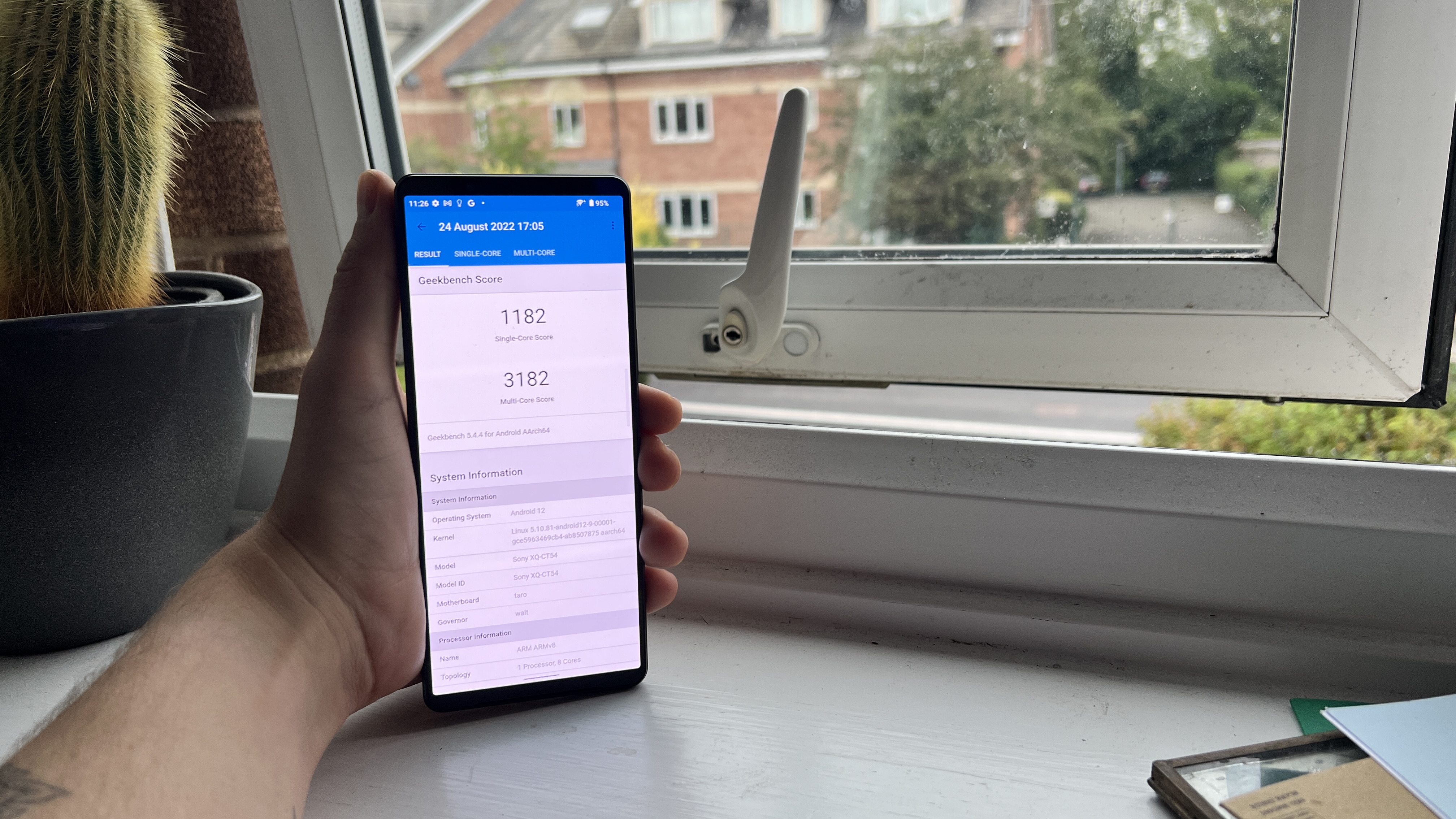
Before I try to tackle what the actual problem is here, it’s worth noting that in real-world use, these numbers don’t really matter, as you’re going to get a fluid Android user experience. It can tackle all of your day-to-day tasks and prosumer use cases, such as recording 4K HDR video at 120 fps. Plus, multitasking is a cinch with that 12GB of RAM.
But there’s no denying these numbers are a little underwhelming given what specs are in here. What is causing this slow down? I’ve researched similar problems faced by other owners of this phone and I can only chalk it down to one thing: thermal throttling.
As I allude to throughout this review, the phone does get very hot very fast. I don’t have a temperature gun to check it scientifically, but in personal use, it does get uncomfortably warm under mid-to-strenuous use conditions. One small, welcome improvement is that the video app doesn’t shut down after a few minutes due to overheating, so this is a worthwhile vlogging phone for sure.
It is my belief that the poor thermal management leads to this drop in performance. In most use cases, it will not be a problem, but still, Sony really needs to address this issue with better cooling methods.
Sony Xperia 1 IV battery Life & charging
The Sony Xperia 1 IV packs a beefy 5,000 mAh battery and 30W charging and wireless charging capability. Stamina has always been a bit of a moving target with Xperia phones — especially with that 4K display and a powerful chipset. But this does do rather well.
I made it through a standard day (a few hours of web browsing, calls, messaging, listening to podcasts and Spotify all day, social media use, plenty of YouTube binge watching, and wrapping up with some gaming in the evening) with about 20% remaining. With the included charger, I juiced the phone up to 50% in just over 30 minutes.
Can you kill the battery quickly? Sure. Using the pro camera apps soaks up the juice fast, but for day-to-day use, you won’t have a problem.
Sony Xperia 1 IV cameras
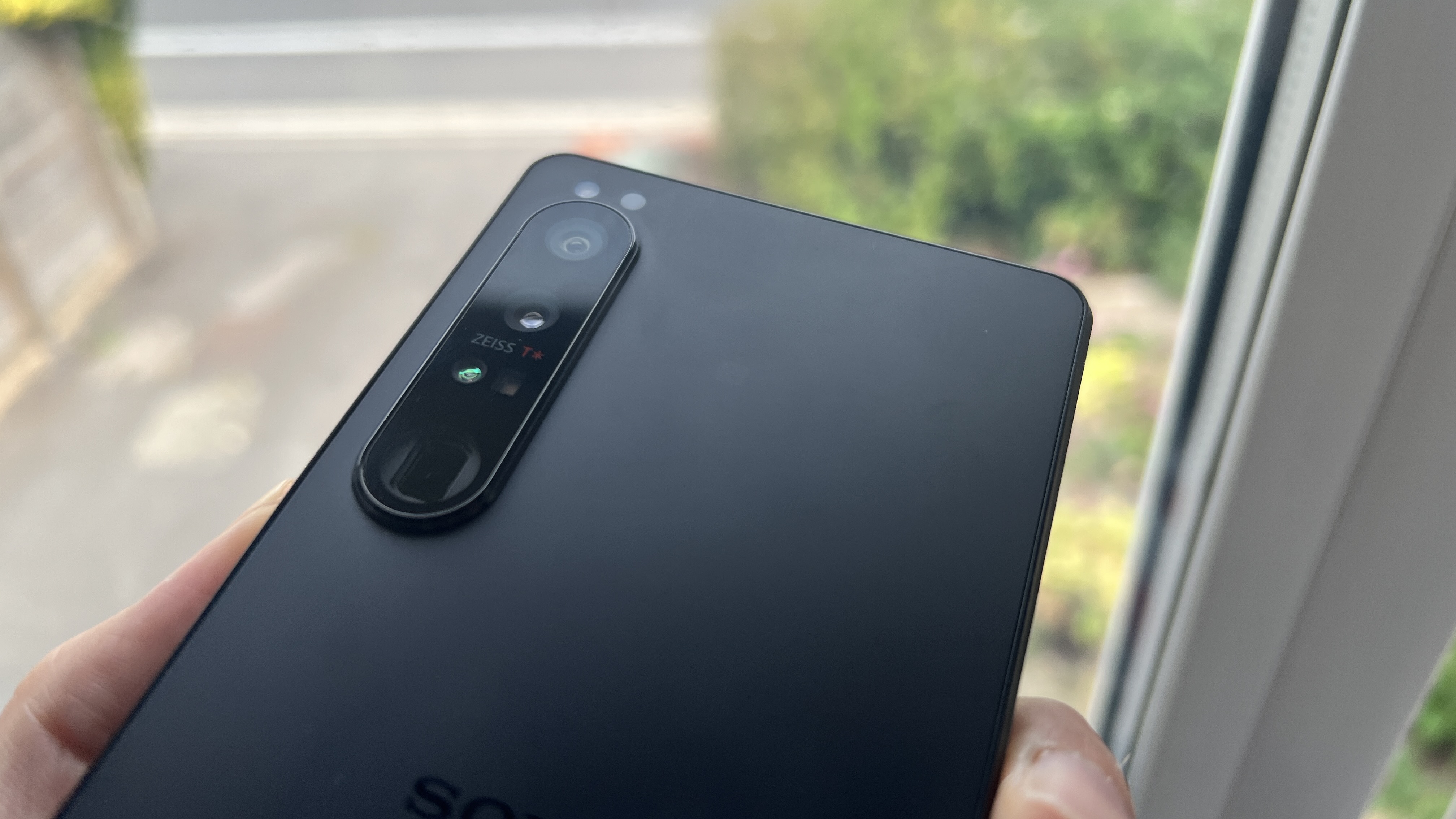
Now it’s time for the other jewel in the Xperia 1 IV’s crown: the camera system. Put simply, if you have an in-depth knowledge of camera settings and really want to have that manual control, it’s one of the best in the business.
On paper, it’s all very similar to the third iteration, as you’ll find a 12MP 24mm main lens with f/1.7 aperture, a 12MP telephoto lens up to 125mm with an f/2.3 aperture, and a 12MP f/2.2 ultrawide with a 124-degree field of view — all of which come with Zeiss optics.
But there is one small but impactful update. Rather than the telephoto shooter flipping between a 70mm and 125mm lens and giving you only two zoom ranges to pick between, the Xperia 1 IV has a fully optical zoom between 85mm and 125mm. It’s a fantastic piece of engineering that in practice, leads to an increased versatility in the zoomed shots you can take — all of which benefit from the same accurate color science and detail of its other lenses. Though, you can detect a hint of noise around the edges, due to the narrower aperture.
These cameras combine with Sony’s pro photography DNA in the form of two apps: Photography Pro and Cinema Pro. Alpha camera users will feel right at home, but camera noobs will need to take a little time to learn all the features you can play with beyond the standard auto. That’s because while leaving everything up to the phone does produce decent shots with a flatter color profile and strong clarity, it takes a little manual control to really extract the best possible shots.
The capabilities awarded through these settings, such as altering the shutter speed and white balance, means you can let your creative mind run wild — provided you know what you’re doing, as these options can get quite convoluted.

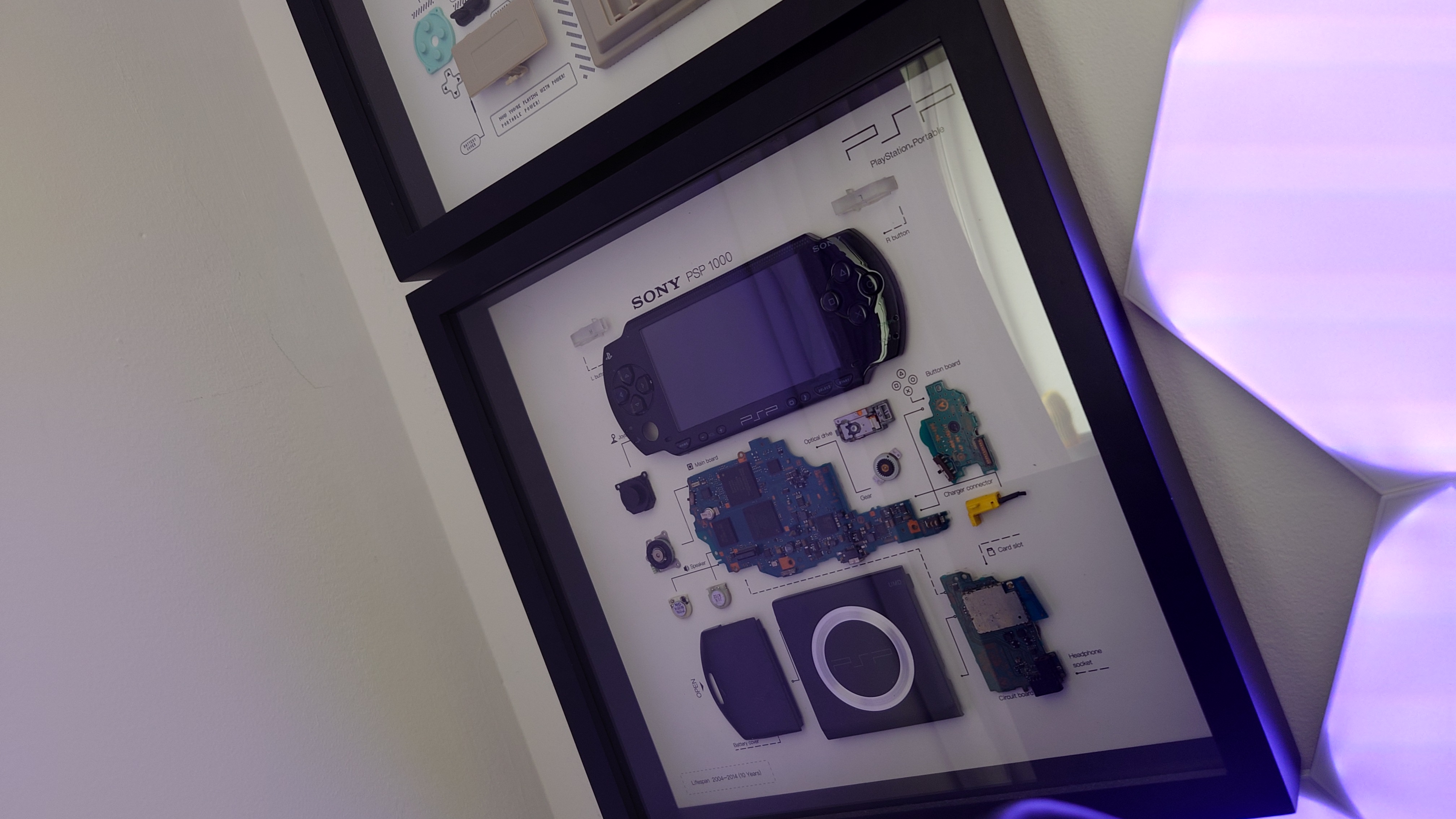




Once again, the ultra-wide is a lot of fun to use, thanks to the detailed, expressive shots it can take with the same color science as the main, alongside a slight bit of deliberate lens warping around the edges for a touch of personality.
There isn’t a dedicated night mode here and the results can be a bit of a mixed bag. Sometimes, Sony shows its muscle with real clarity in low light when set to auto, which you can improve by going manual and increasing the shutter speed or exposure. But in other moments at night, this does lead to dull and noisy shots.
I can appreciate the work the company has done in delivering a top notch camera in most lighting conditions, but it just needs even the most rudimentary of night modes to complete the package.
Plus, the 12MP selfie camera delivers a nice, detailed shot with the help of eye detection for sharp focus and hand gesture recognition to take pictures by waving, which reduces the camera shake of pushing the button.
Moving over to video, I’ll just go ahead and say this is one of the best phones for snapping clips. The visual fidelity and expressive color of the 4K capture is a massive step above most Android flagships — capturing the best slow motion video I’ve ever seen up to 120fps.
In Auto mode, the video is pretty standard, but with the benefit of all the custom settings in Cinema Pro, you can get some great cinematic content with direct control over focus length, the white balance, ISO and shutter speeds, alongside pre-installing custom LUTs (or what Sony calls looks) to add some additional expression. But do be warned, using this app heats up the phone to uncomfortable temperatures. Don’t touch the back in the midst of a heavy shooting session!
Overall, the cameras are a real strength for Sony’s Xperia 1 IV, for the right audience. If you want to set the camera to auto and go the iPhone 13 Pro Max, Galaxy S22 Ultra or Pixel 6 Pro have the edge, but for creative pros who have the knowledge and patience to tweak settings for each shot, you can get a masterpiece.
Sony Xperia 1 IV software
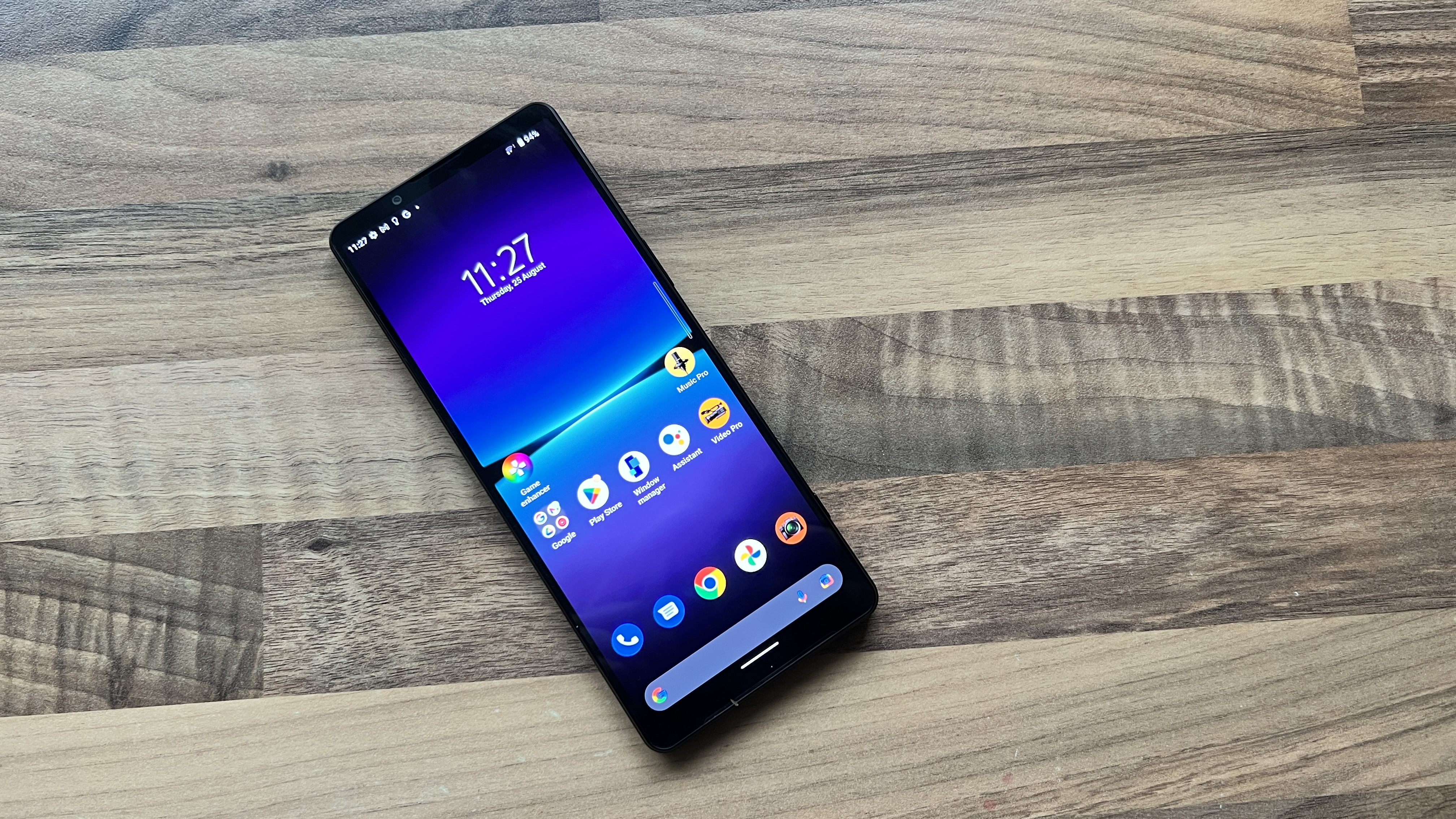
The Sony Xperia 1 IV runs Android 12 with zero bloatware. The UI overlays added to help you overcome the taller display are useful, with easy access to split-screen multitasking and the Side Sense bar for additional control.
Sony does stumble with software update support, though. While there is no official policy on how long the company will support the Xperia 1 IV, history suggests you’ll get two years of updates. This is disappointing, as you’re able to get better software support from cheaper phones.
Bottom line
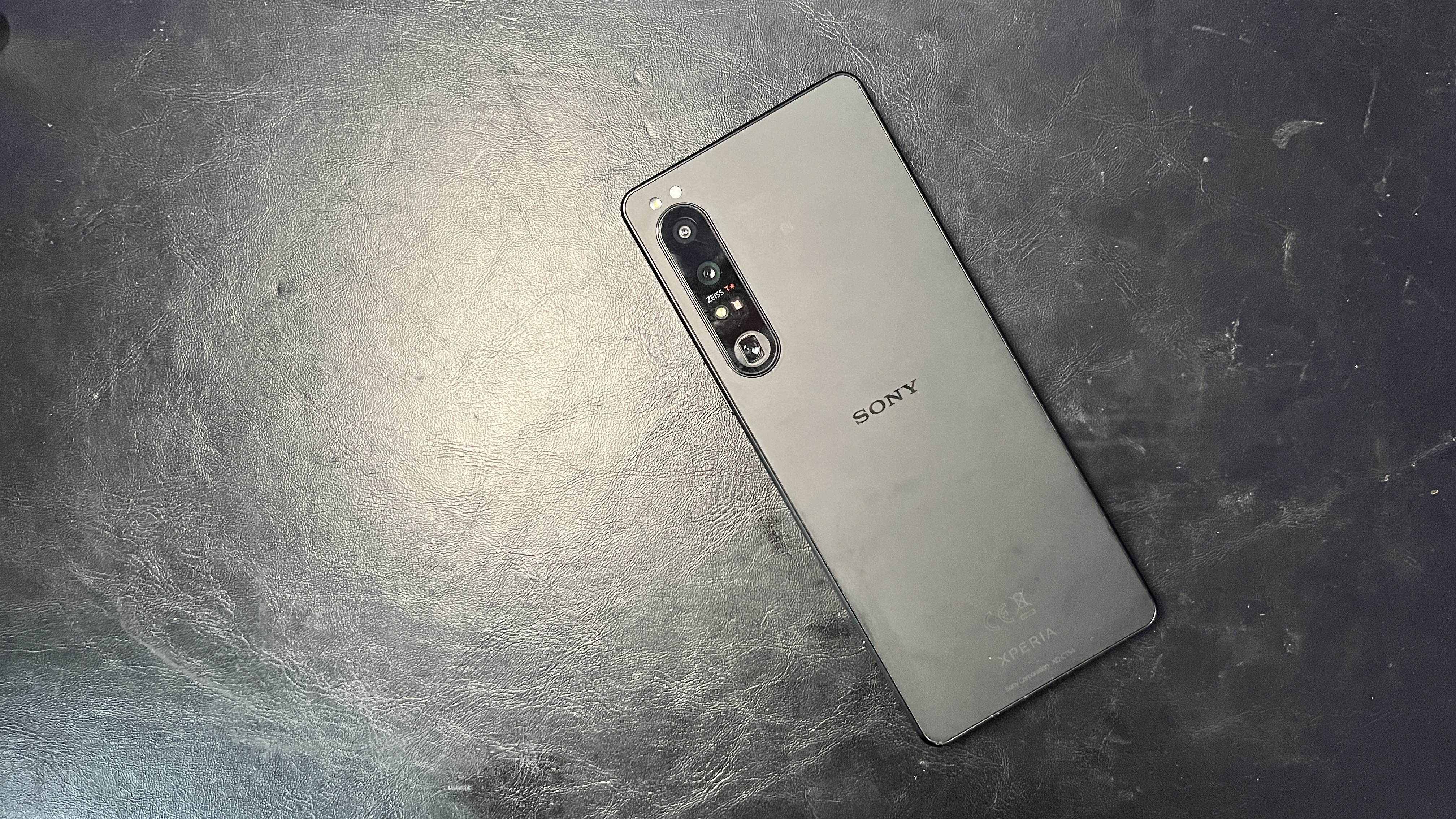
The Sony Xperia 1 IV is an iterative improvement over the III, which tightens up some of the problems but still falls victim to a lot of the same issues.
There is some clear thermal throttling that stops the stellar Snapdragon 8 Gen 1 chipset from operating at its best, the long design will not be for everyone and let’s be honest — packing a 4K display in something this small provides a barely noticeable improvement at the behest of an extra bit of battery juice.
But for camera pros and Xperia fans, these issues are easily forgiven in what is a cracking phone for photography and entertainment!

Jason brought a decade of tech and gaming journalism experience to his role as a writer at Laptop Mag, and he is now the Managing Editor of Computing at Tom's Guide. He takes a particular interest in writing articles and creating videos about laptops, headphones and games. He has previously written for Kotaku, Stuff and BBC Science Focus. In his spare time, you'll find Jason looking for good dogs to pet or thinking about eating pizza if he isn't already.
